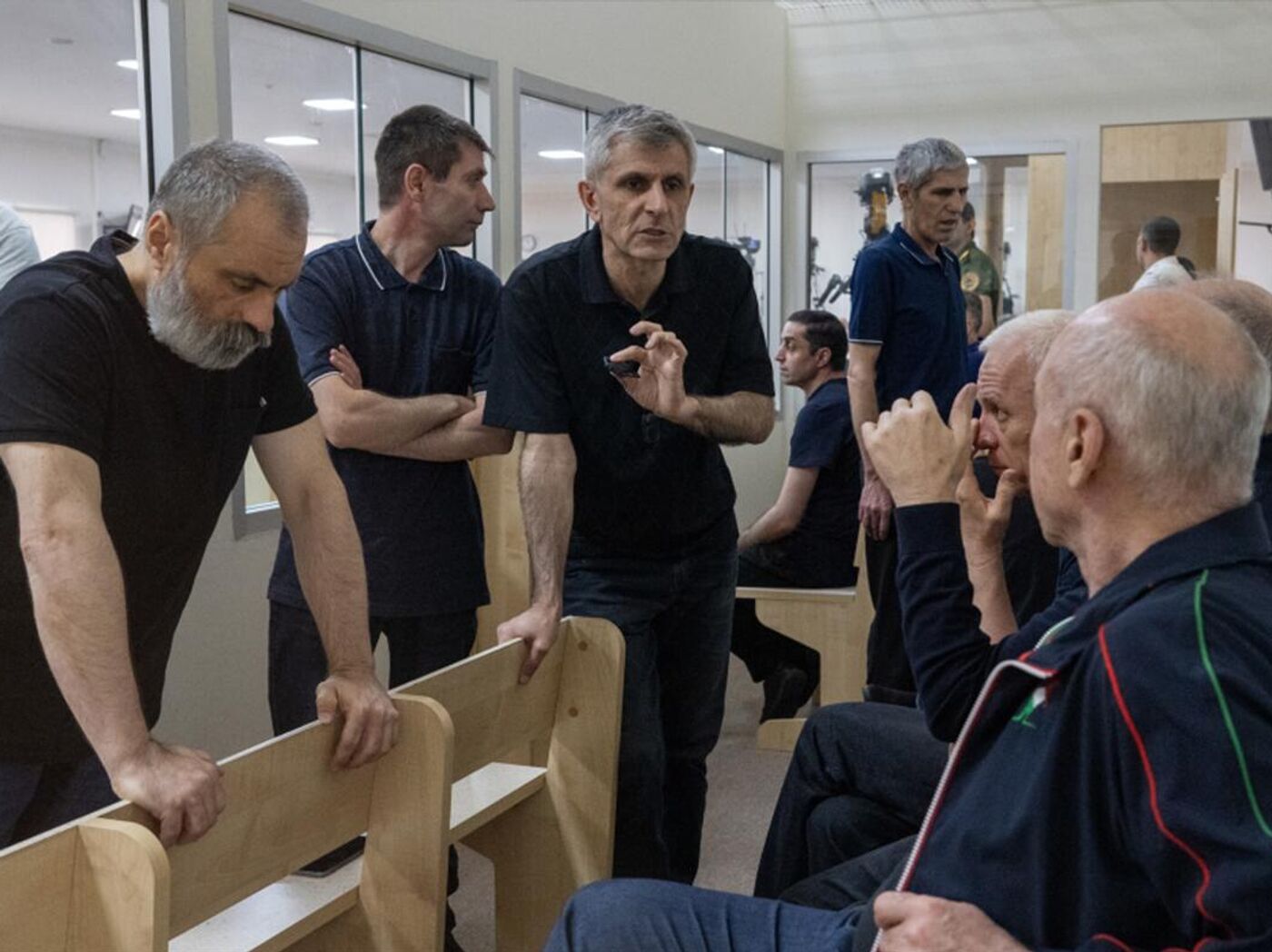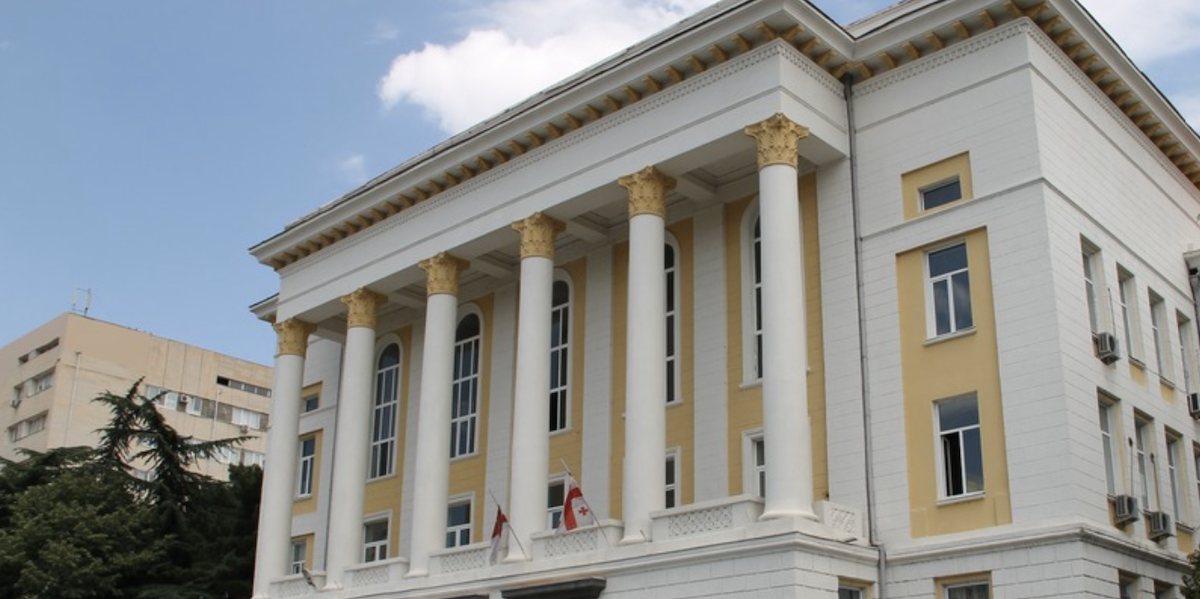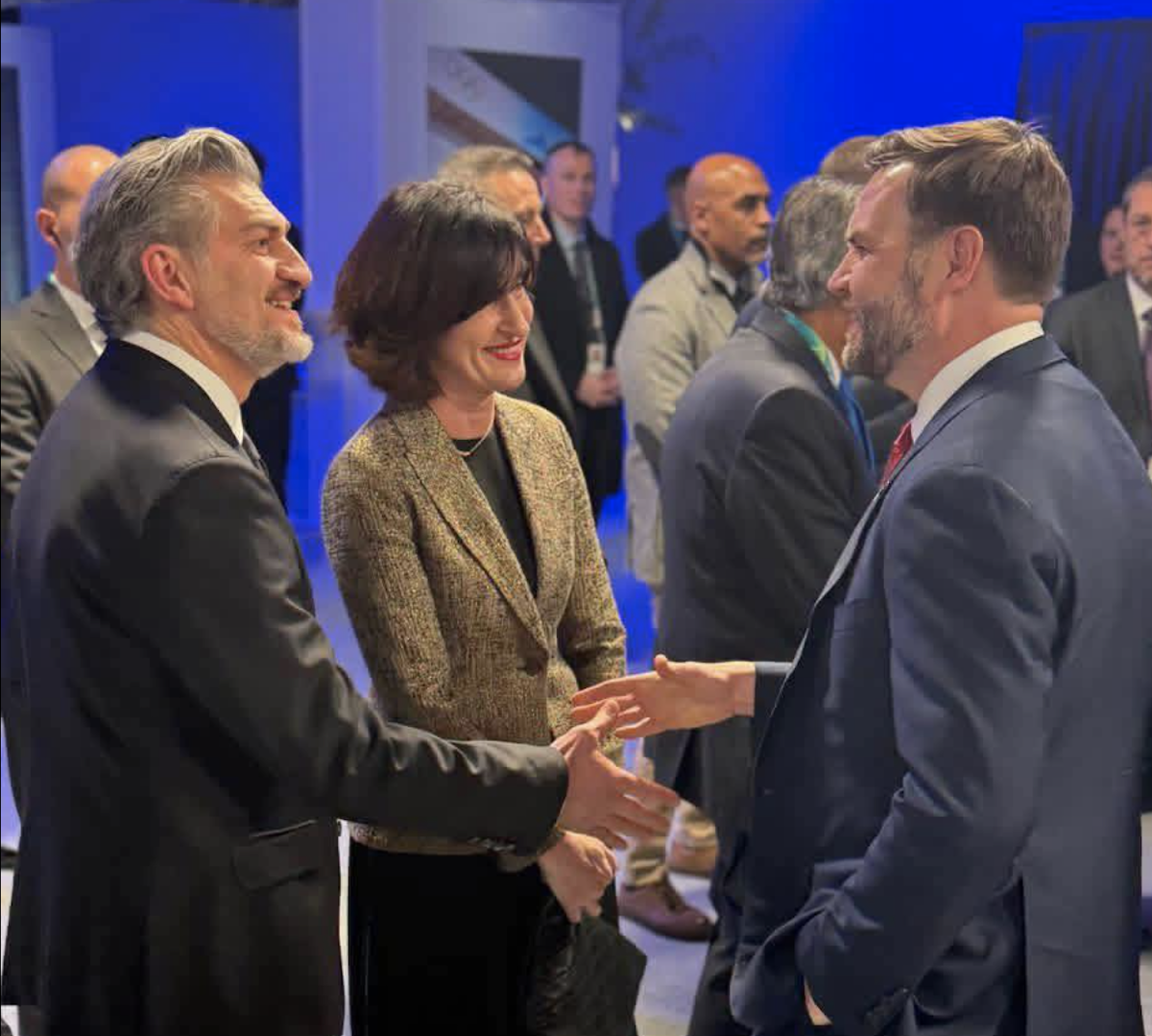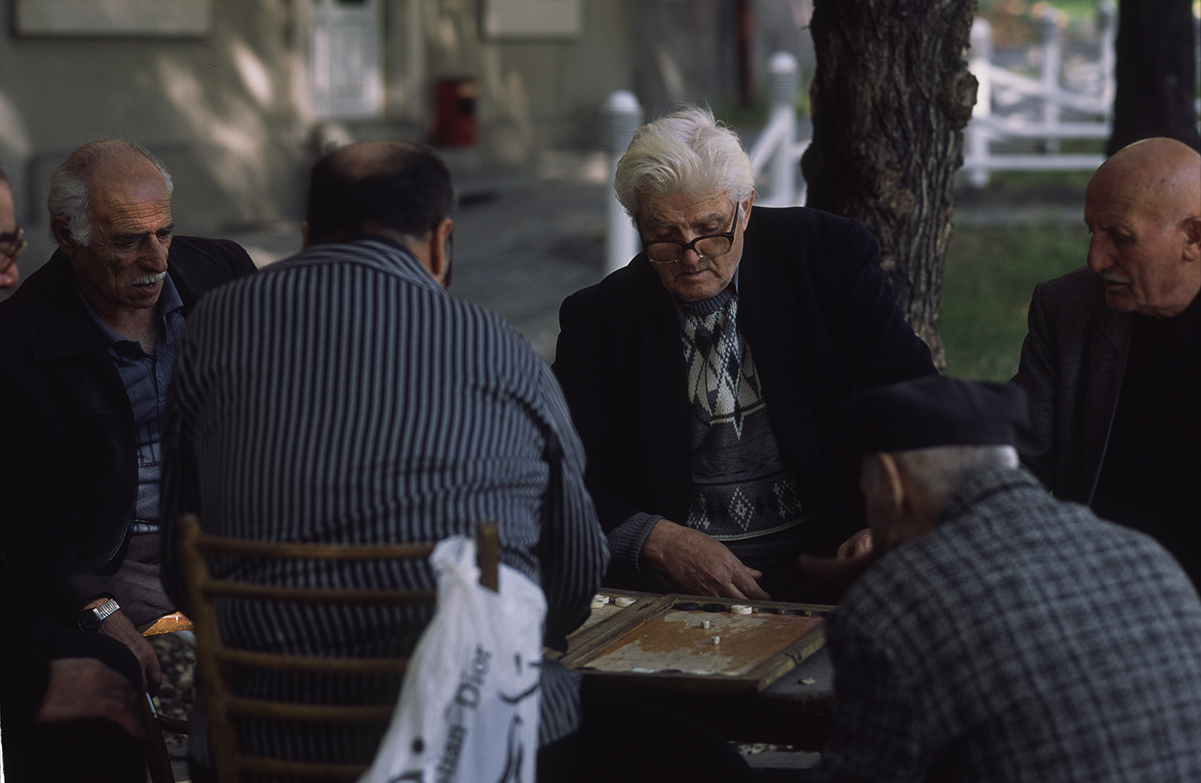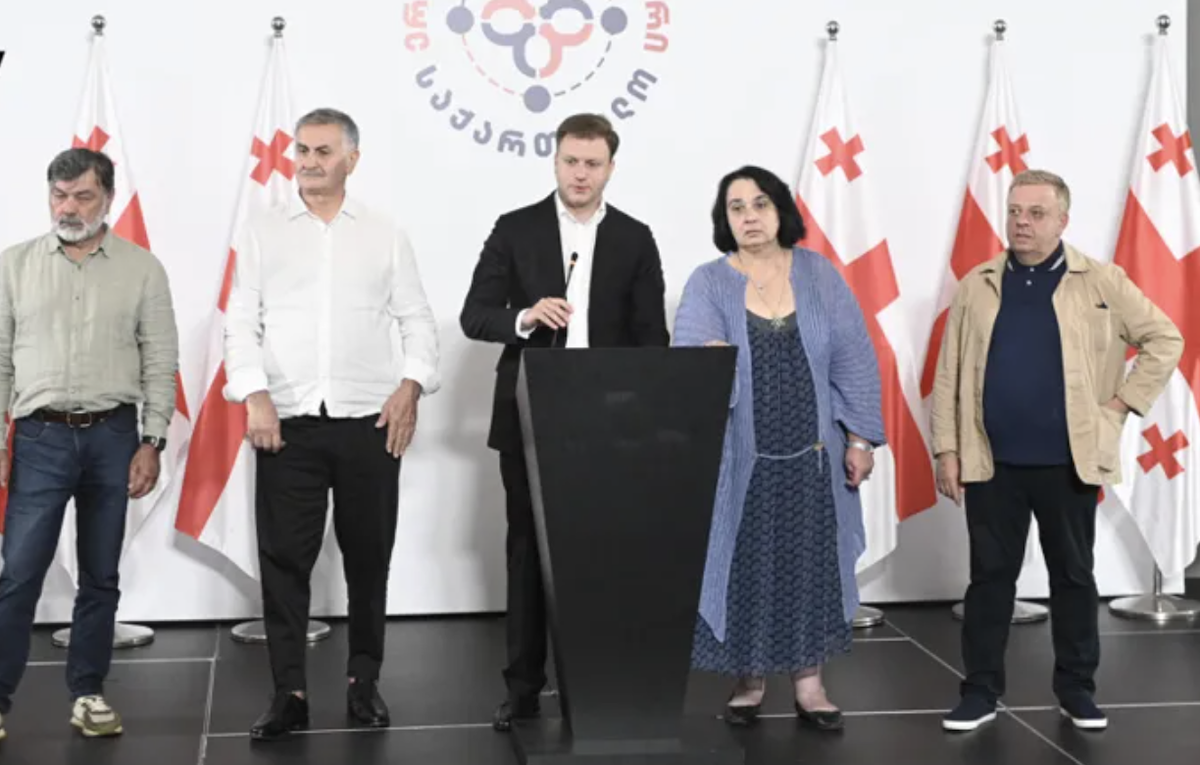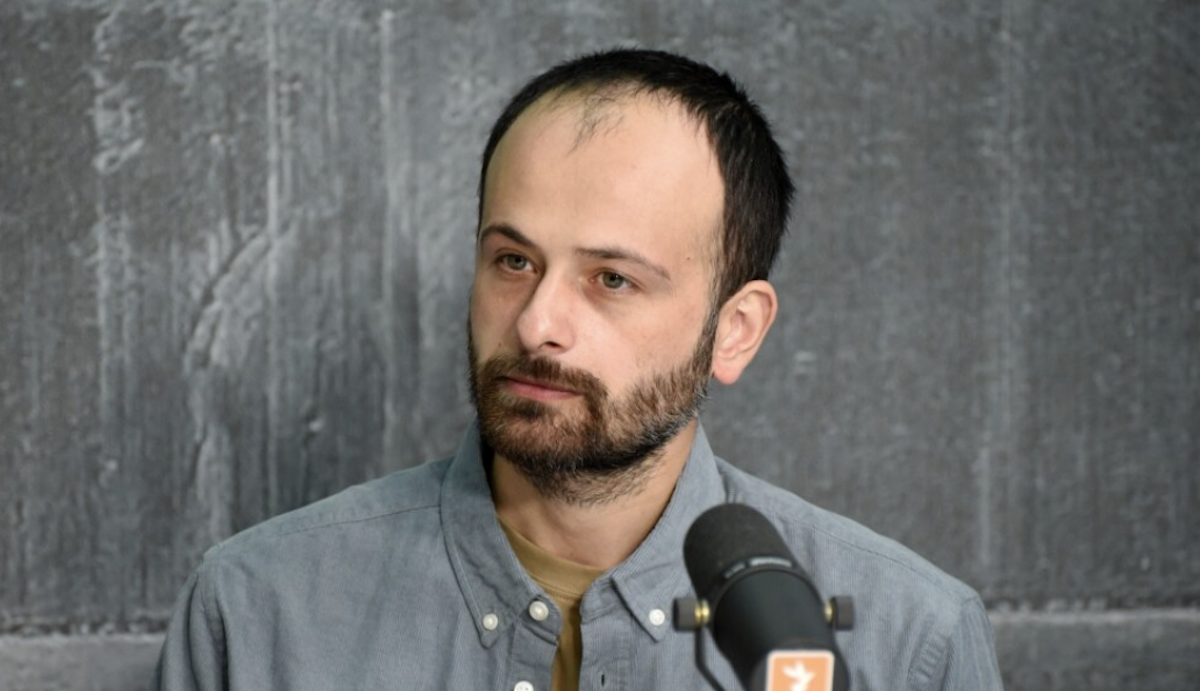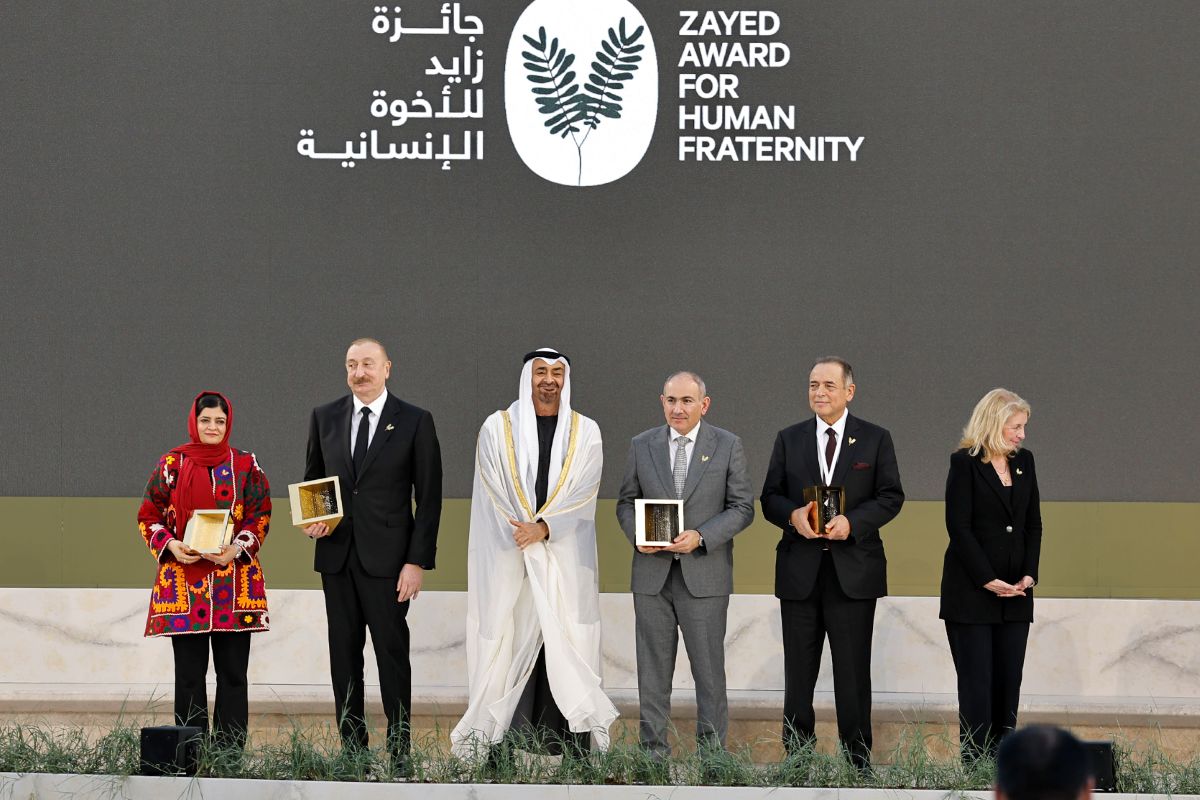“We are trying to be strong.” Stories from relatives of Georgian fighters killed in Ukraine
Georgian volunteers in Ukraine
Since February 24, the beginning of the Russian invasion of Ukraine, dozens of Georgian volunteers have gone to the front to fight. Some to help civilians, others to fight.
Last week the body of 46-year-old Mikhail Kaplanishvili was brought to Tbilisi. On October 21, near Lugansk, he was surrounded by fighters from the Russian Wagner mercenary group. Two more Georgian fighters have been killed in Ukraine — 24-year-old Alexander Martiashvili and 40-year-old Guga Gagnidze.
At this point, according to unofficial estimates, more than twenty Georgian soldiers have died in Ukraine.
JAMnews talked to family members of the victims and heard their stories.
David Gobejishvili, 47 years old. Died on March 26 in Irpin.
Marika Kublashvili, wife of David Gobejishvili:
“He was 18 years old when the war in Abkhazia began. He lived then in Sukhumi. After that he always fought against Russia somewhere. He went to the August war without enlisting at all.
When Russia invaded Ukraine he had a ticket to Poland. From there he had to go through Mexico to America, like many others. But when the war began, he immediately said that he should go to Ukraine, and not to America.
He was very worried about this. I knew he wouldn’t stop. But he was still going to America with a relative, and I thought that he would not give up America and go to Ukraine because of this boy with him, a relative.
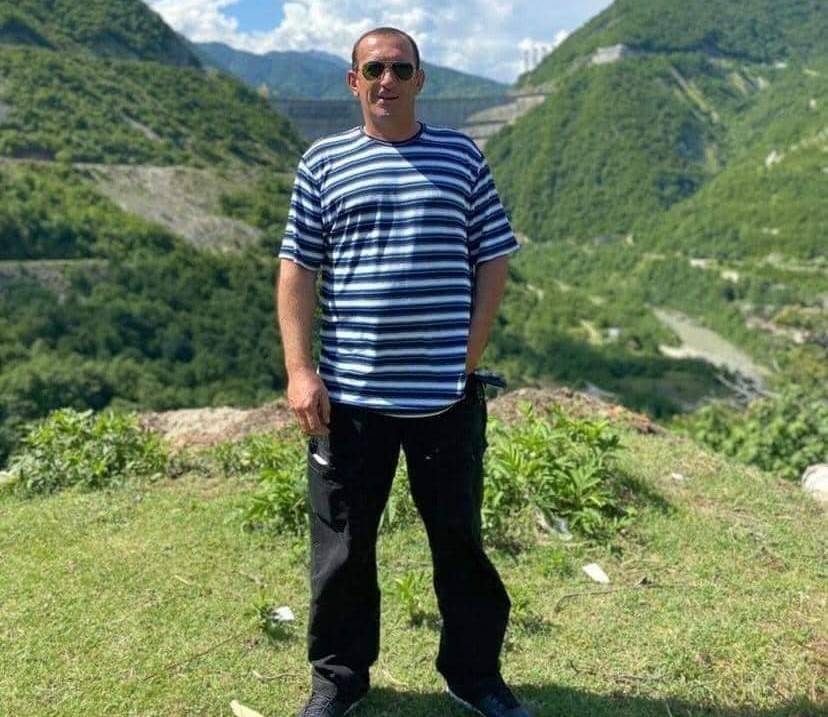
Georgian volunteers in Ukraine
When he flew to Poland, he had to be in quarantine because he had no vaccinations [against covid]. There were three days left before the end of the quarantine when he told me: “Marika, don’t be afraid, don’t disturb the children. But I can’t stay here, I have to go to Ukraine.
I panicked, I tried to convince him not to, but he told me that it wasn’t for long, that he had to help, repay some sort of debt. The whole family pleaded with him day and night, but to no avail.
On March 21, he left Poland alone. He called us on the way. When he arrived, we never spoke to him on video so that I could not see what was really going on there. He wrote to me that he was in a three-room apartment in Kyiv and everything was fine. I calmed down a bit.
- The fate of Ukrainian refugees in Georgia after they fled the war-torn areas via Russia
- To America through Mexico – whither, how, and why Georgian citizens are leaving
He could not contact us much, he would tell us that the internet didn’t work well. His comrades later told us they were under fire at those moments. He left on March 21st and died on the 26th. He did not have a minute of rest, he fought the whole time as a sniper.
As written in the death certificate, he died in Irpin in bombing. Cluster bombs or something like that, fragments hit him in the head and the blast broke his bones. He was 47 years old.
Follow us – Twitter | Facebook | Instagram
Before telling me the news, they first said that Dato had been injured. I said “Do not lie, just tell me if he is dead.” And then they confirmed it.
It is incurable, unbearable pain. But at some moments I feel proud that I had such a husband. I think he didn’t want to be a hero, but he would like to be proud of his deeds. You know, we humans are selfish, we only think about ourselves. And he sacrificed himself. My heart aches that he died at the hands of a Russian. He kept telling me: “The Russians haven’t shot at me yet, they won’t do anything to me, don’t be afraid.”
We have two children — 15 years old and 21 years old. One of them is a handball player. A few days ago, he told me that sometimes he thinks his father is just at the gym.
As soon as it gets light, I watch what is happening in Ukraine. Now this is what I live for. I want Ukraine to win more than ever.
My husband died heroically. I didn’t know I had such a brave husband. Of course, I knew that he was brave, but now I am truly proud.
Kakha Gogol, 47 years old. Died on July 10 in Lugansk.
Irakli Pipia, Kakha’s cousin:
“He was already there on February 27th. His understanding of freedom came through the victory of Ukraine. He was a great patriot and tried with all his might to defeat, weaken the enemy and thereby contribute to the prosperity of the country. He was 17 years old during the war in Abkhazia, so he was not drafted to fight, but he himself went. He was also a participant and veteran of the 2008 war. Then he took off to fight in Ukraine.
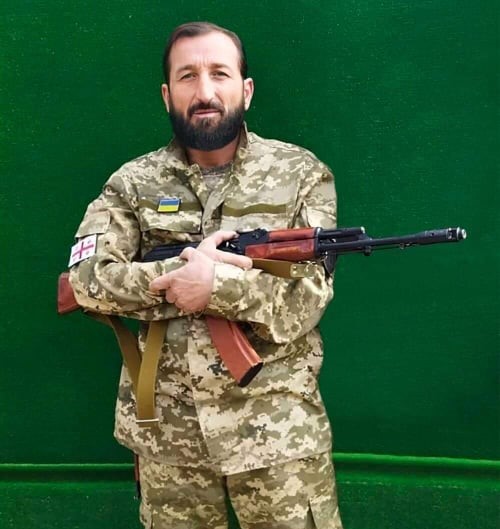
I was not surprised, because I knew him well since childhood. He went where he was needed. He did not ask anyone for advice, he himself did everything that the country and the family needed. As soon as he made this decision, he told his friends. The family found out a little later, and it was, of course, pointless to resist his decision.
He was in almost daily contact with his family and relatives.
He reassured us all the time: “We will definitely defeat Russia and after the victory in Ukraine we will return victorious to Abkhazia.”
That’s what he believed — Ukraine will win and this will be the beginning of the unification of our country. He was from the village of Upper Pshap, from Abkhazia, he was born and raised there.
On July 10 at dawn, he was killed in Lugansk in a bombing. He was 47 years old. He left a wife and an adult son, who is 25 years old.
We heard all this from his comrades, from the people who were next to him. This is a very big loss. He wanted to help the country based on his military potential, based on his knowledge. In addition, being an extremely energetic person, he never asked for help from friends or relatives. He knew everything himself and was the first to arrive at his destination. He was a very reliable person, and he loved his homeland.”
Gia Beriashvili, died on March 18 near Irpin.
Keti Kheladze, wife of Gia Beriashvili:
“Gia left not knowing that he would end up in Ukraine. But when he arrived in Poland, he told us that he had to go and help Ukraine. And I could not even imagine that he was going to war. I didn’t even believe him at first. He was a man who did not like to flaunt his actions. He called us almost every day, sometimes two or three times. But I couldn’t believe that he was fighting on the front lines. He called specifically at such a time and from such a place so that we would not suspect anything. But then a photo appeared — he was next to a tank. And that’s how we knew he was actually in combat.
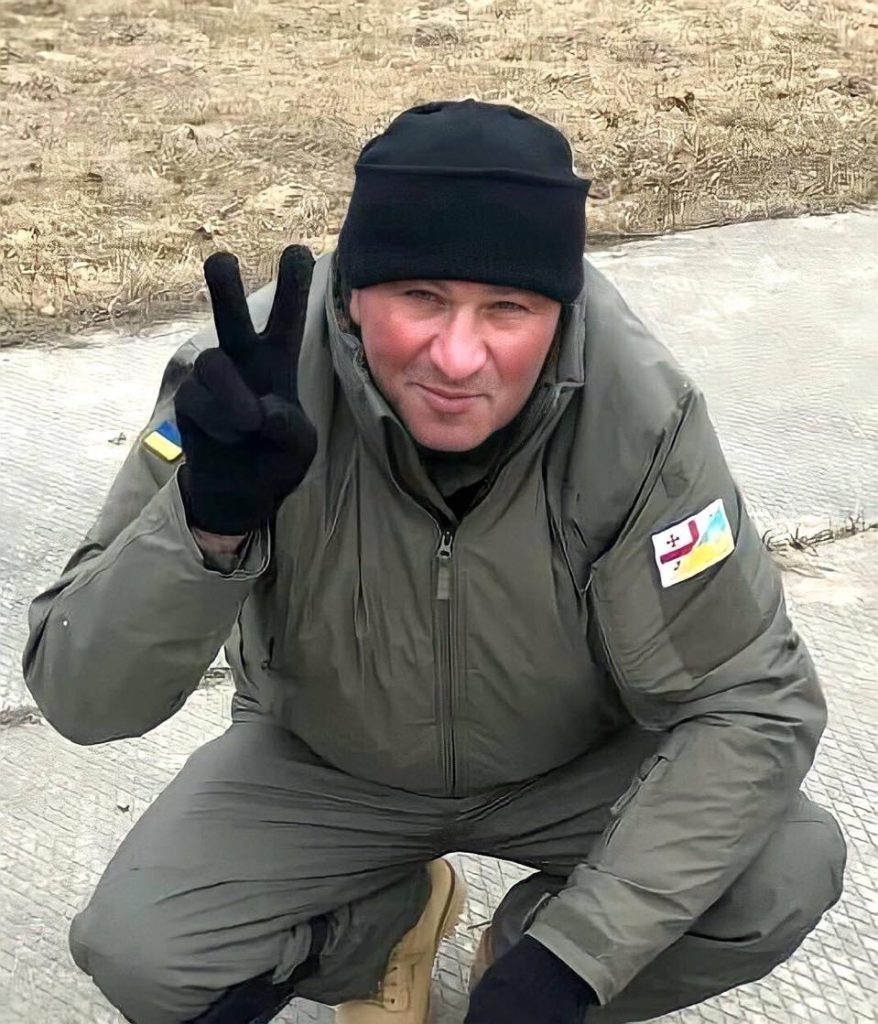
I tried to change his mind, but it was useless. He was sure he was doing the right thing. He kept saying that this is not only a war in Ukraine, but also a war in Georgia. He was also a participant in the 2008 war; he considered Russia an evil empire.
It was reported that he died on March 18. But for some reason I think it happened on the 17th. On March 17 Gia did not contact me, and I wrote to him every minute. It was already four o’clock when he answered me: “I am alive.” And a few days ago, one of the military posted a video taken on March 17. There they were looking for David Ratiani and Bero [short for Beriashvili’s last name], the sounds of bombing were heard, they were nervous. And then I realized that Gia had had a mobile phone during this fight, and these were his last words.
On the morning of the 18th, when I went to work, I read on Facebook that two Georgians had died. I began to ask everyone in the office, but no one knew exactly who had died. It was about two o’clock when Gia’s friend came to my work and told me everything.
Gia fought in Irpin. There are many versions of his death. I’d be lying if I said I was sure about one. According to one version, after the bombing he returned to carry a French soldier from the battlefield, and this was recorded by a drone. That soldier survived.
We lived together for 25 years, knew each other for 28 years. I was not afraid of anything when my son was born. There were three of us, we had a small but very happy family. Now there are only two of us left – me and our 23-year-old son. We’re trying to be strong, but… I hope we can do it.
I hope that the sacrifices they made are not in vain, that the evil empire will definitely be defeated. This is also very important for our country. I want to thank all the people who supported me by writing: “Glory to the heroes.” This is such real support for me, you have no idea. And thanks to the journalists. If it weren’t for you, things wouldn’t be the same…”
Aluda Zviadauri, 42 years old. Died on June 18 in Lugansk.
Nugzar Chincharauli, uncle of Aluda Zviadauri:
“He grew up before my eyes; his father died and they lived with me. He didn’t have an apartment, and he went to work in Estonia in order to somehow improve his living conditions. He didn’t call for a long time, two weeks. And then he called me and said that he was in Kyiv. I didn’t tell his mother, but begged him to come back.
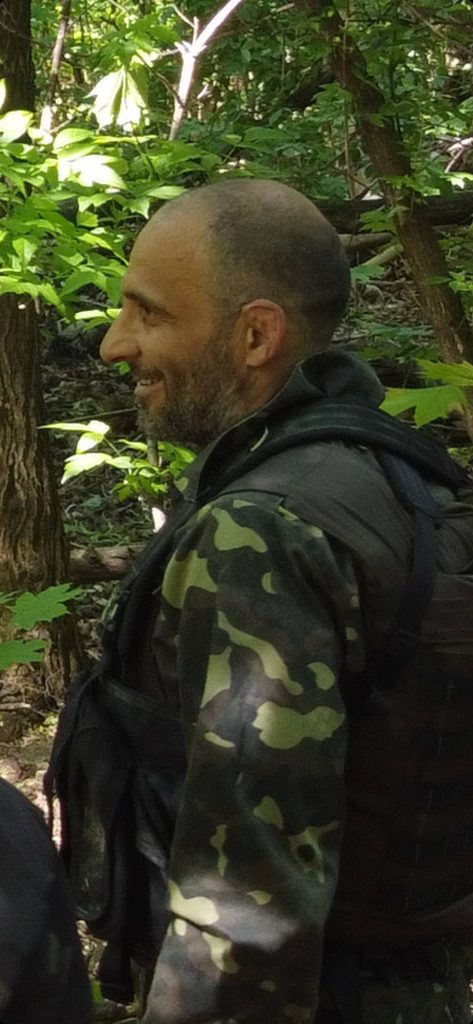
He had no combat experience, he had never been to war, had only completed his regular military service. I explained that even if he doesn’t get hurt, war is a psychologically very difficult experience. But I spoke as if to a stone or a tree. He said, “No. This is our enemy, and if we do not give them a rebuff here, they will come to us in Georgia.”
He got training there, participated in exercises. Then he called me and said that he had signed a contract and was going to Lugansk. He went straight to the front line, then wrote: “Why should I hide? I’m not a rat.” He wanted to talk to his mother, but I was cautious, I had to somehow persuade him to return. But we were not able to break this man. After some time, the news came that he had been killed. He was 42 years old.
In one media outlet, according to the battalion commander Aluda pulled one Ukrainian from the battlefield, and when he pulled another, he carried him one and a half kilometers and was killed then. This commander had advised him not to go there [to the war zone], but Aluda went anyway.
I don’t know if that was the right thing to do, but I wouldn’t have been able to. Aluda was very calm and fearless.
He was buried with military honors.”










